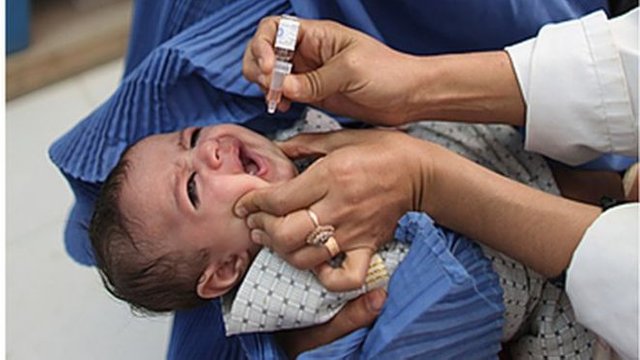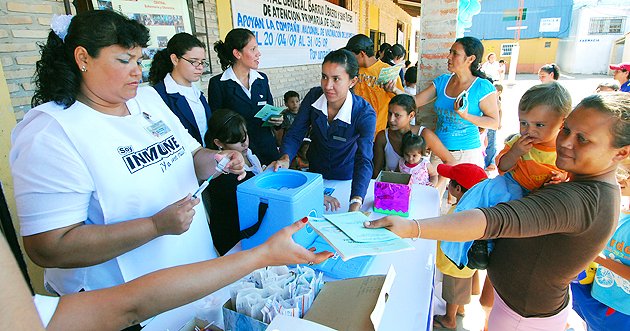Concept of vaccine
Vaccine, being a biological preparation, boosts immunity against a particular disease. It is often made from weakened or killed disease-causing microorganisms that have the ability to encourage body’s immune system, to identify it as foreign, destroy it and keep a record in memory.

Historical viewpoint of vaccination: The scientific concept of vaccination was made in later half of 18th century when a number of scientists and physicians were working hard to build up a vaccine against small pox, the most deadly contagious disease of that time. The concept was based on an observation; scientists discovered that most individuals who once suffered from cow pox safely bypassed small pox. The search was continued for long 25 years until Dr. Edward Jenner (1798) broke through the concept of vaccination. He collected a little pus from a cow pox vesicle on the hands of Sarah Nelmes, a milkmaid, and introduced it into the arm of James Phipps, an eight year old boy. After two months the boy was inoculated with small pox virus, but he did not develop the disease. The modern concept of vaccination is standing on this story. After this invention, the practice of vaccination took the correct route. By this time Louis Pasteur discovered the vaccines of rabies and anthrax. In twentieth century vaccination against small pox was made global and it showed the magic. After a long battle for about two centuries small pox has been eradicated from the world.

Process of immunization: By vaccination a killed germ, weakened germ, toxoids (toxins accumulated from germs) or subunits (fragments of proteins from germs) are introduced into the body of an individual. These may be injected or administered orally. As soon as the matter enters the body, antigens present in it, activate the immune system. T-cells and B-cells take a little time to inactivate such little quantity of antigens. But in this case main function is done by memory B-cells. These cells, produced during the immune response, are retained in lymph nodes, spleen, thymus, etc., for a long time. in case of any future infection by the same germ, these memory cells recognize those antigens instantly and inactivate or destroy the attacker very fast. Thus, a successful vaccination immunizes a person effectively.

Several types of vaccine: With the development of science new and advanced varieties of vaccines are being developed. Till date World Health Organisation (WHO) has licensed vaccines for 25 diseases. Different types of vaccines are
(1) Killed vaccine: These vaccines contain killed pathogens. Vaccines of cholera, plague, influenza are of this type.
(2) Attenuated vaccine: By some laboratory techniques virulence of the pathogens are reduced to prepare this type of vaccines. Vaccines of mumps, measles, and rubella are of this type.
(3) Toxoid vaccine: This type of vaccine is prepared by inactivate toxins from pathogens. These are used to immunize against tetanus, diphtheria etc.

(4) Conjugate vaccine: Polysaccharide of bacterial capsule is attached with a protein to prepare this vaccine. Body’s immune system can recognize this conjugated protein and keep it in memory for future immune response. Vaccine against Haemophilus influenzae type-B is of this type.
(5) Subunit vaccine: This type of vaccine is made by small fragments of pathogenic protein. Vaccines against Hepatitis B are of this type.
(6) Heterotypic vaccine: This is made by pathogens, causing disease to other animals but less or non-virulent to human. Vaccines of small pox and tuberculosis are of this kind.
Gotta love vaccine propaganda like this. It's all so very scientistic. In their own literature they clearly state: "all vaccines are inherently unsafe." But for newborn infants I guess it doesn't matter.
[Citation needed!]
Fact or Fiction?: Vaccines Are Dangerous
This is from the Supreme Courts decision regarding liability resulting from vaccine-injury.
https://www.supremecourt.gov/opinions/10pdf/09-152.pdf
"Most importantly, the Act eliminates manufacturer liability for a vaccine’s unavoidable, adverse side effects."
“No vaccine manufacturer shall be liable in a civil ac- tion for damages arising from a vaccine-related injury or death associated with the administration of a vac- cine after October 1, 1988, if the injury or death re- sulted from side effects that were unavoidable even though the vaccine was properly prepared and was ac- companied by proper directions and warnings.”27
What does unavoidable mean?
Just shows courts (supreme or not) are no scientists.
These were at the onstart vastly needed and valuable, but there has been some highly injurious issues over the last decade or so.
Yep. One of the worst being conspiracy theories undermining the necessity of them.
Awesome reply. Thumbs up! :-)